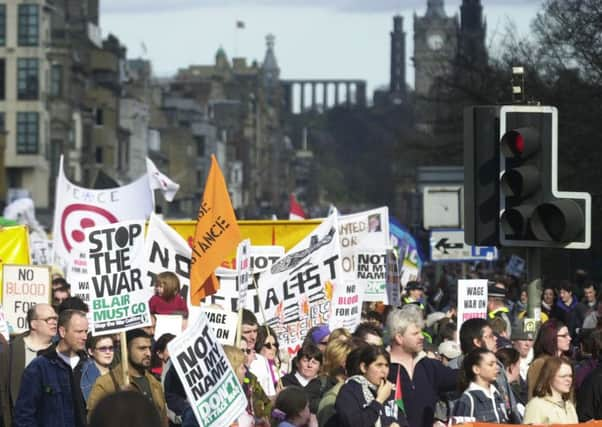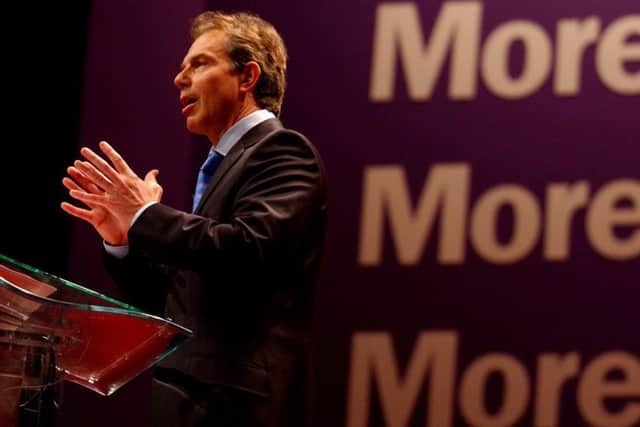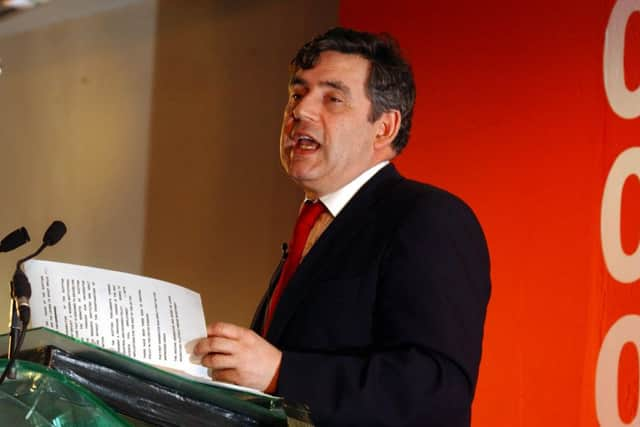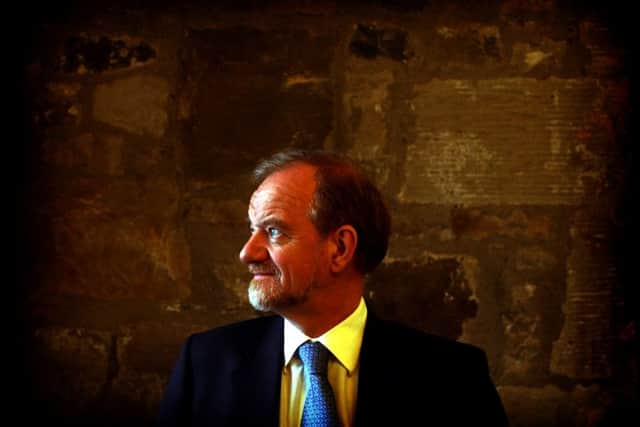Chilcot report: The Scots at the heart of the Iraq war controversy


The inquiry, which took seven years to present its conclusions, was critical of the UK Government’s reasons for invasion, the lack of detailed planning for the aftermath of the conflict, and a general failure to adequately prepare and equip the servicemen and women sent overseas to fight.
At least 150,000 Iraqis - most of them civilians - died in the conflict following a US-led coalition invasion of the country in March 2003 to remove Saddam Hussein from power.
Advertisement
Hide AdAdvertisement
Hide AdThe UK lost 179 servicemen and women in Iraq - 19 of them Scots.


The political backdrop to the invasion 13 years ago is markedly different to now. New Labour was in power, having won a second landslide victory at the 2001 General Election.
Several Scots played key roles in the decision to go to war, the mass opposition to the conflict, as well as commissioning the subsequent Chilcot report which examined the UK’s role in the conflict.
TONY BLAIR. Prime Minister, 1997-2007
Blair, who was born in Edinburgh and educated at Fettes College in the city, won three General Elections as Prime Minister. But his decision to back the US-led invasion of Iraq was the subject of intense controversy and has clouded his reputation ever since.


The Prime Minister repeatedly insisted in the run-up to war that the Iraqi regime presented a clear threat to the UK and its allies, and that military action was the only solution if disarmament failed. But this argument was comprehensively rejected by Sir John Chilcot. “The UK chose to join the invasion of Iraq before the peaceful options had been exhausted,” he said.
A defiant Blair said yesterday the decision had been “the hardest, most momentous, most agonising... I took in 10 years as British Prime Minister.”
When asked if invading Iraq was a mistake, he insisted: “I believe we made the right decision and the world is better and safer.”
The former Labour leader also claimed the Chilcot report dismissed long-standing allegations that he deliberately lied to the British public and purposefully manipulated intelligence in making the case for war.


GORDON BROWN. Chancellor of the Exchequer, 1997-2007
Advertisement
Hide AdAdvertisement
Hide AdBrown was the second most powerful politician in the UK at the time of invasion, wielding considerable influence over a large number of Labour MPs as well running the treasury. There was much speculation in the weeks before the decision to attack was made that he could wield a veto on whether to commit British troops.
But the former Fife MP has consistently backed the 2003 war. In his appearance before the Chilcot inquiry in 2010, he denied starving UK armed forces of equipment, and insisted every request he made as chancellor was met.


He told Chilcot the invasion was “the right decision for the right reasons” and added “everything that Mr Blair did during this period, he did properly”.
Brown, and the wider treasury, were regularly blamed in sections of the press for not allocating sufficient resources to properly equip British troops.
However, the Chilcot report said it could find “no evidence that any department or individual assumed ownership or was assigned responsibility” for what happened after the invasion.
It added the Ministry of Defence was slow to address problems and branded its preparations as “wholly inadequate”.
As Prime Minister, Gordon Brown announced in July 2009 an inquiry would be held into the UK’s involvement in Iraq, covering the period 2003-2009.
It was intended to report in 2011, but was repeatedly delayed until this week - a delay of five years.


ROBIN COOK. Leader of the House of Commons, 2001-2003
Advertisement
Hide AdAdvertisement
Hide AdCook was the most high profile of the 139 Labour MPs who voted against the invasion on March 19, 2003. The Livingston MP, a former Foreign Secretary, had resigned from Tony Blair’s cabinet two days previously.
Under Westminster house rules, resignation speeches have no time limit. In a speech before a packed of House of Commons, Cook said: “I cannot support a war without international agreement or domestic support.”
He added: “None of us can predict the death toll of civilians from the forthcoming bombardment of Iraq, but the US warning of a bombing campaign that will ‘shock and awe’ makes it likely that casualties will be numbered at least in the thousands.
“We cannot base our military strategy on the assumption that Saddam is weak and at the same time justify pre-emptive action on the claim that he is a threat.”
This last assertion was supported by the Chilcot report published 13 years later.
Cook died from a heart attack aged 59 in 2005.
His headstone in the Grange cemetery, Edinburgh, is inscribed the epitaph “I may not have succeeded in halting the war, but I did secure the right of parliament to decide on war.” It was chosen by his widow and two sons from his first marriage.
CHARLES KENNEDY. Leader of the Liberal Democrats, 2001-2006
Kennedy, former MP for Ross, Skye and Lochaber, was the only leader of a major UK party to voice his opposition to the invasion of Iraq.
The Highlander was branded a “spineless reptile” by one London newspaper in response and referred to as ‘Charlie Chamberlain’ by some MPs.
Advertisement
Hide AdAdvertisement
Hide AdKennedy stood down as Lib Dem leader in 2006 and lost his seat at the 2015 General Election. He died last year aged 55.
Tim Farron, the current party leader, said the Chilcot report had “vindicated” Kennedy’s judgement.
He said: “I hope those in the Labour and Conservative parties who were so forceful in their criticism of him and the Liberal Democrats at the time are equally forceful in their acknowledgements today that he was right.”
